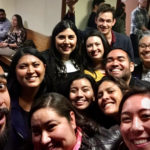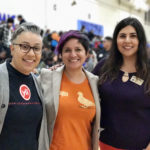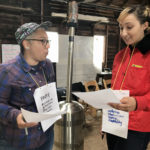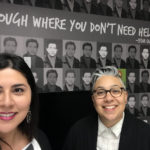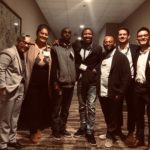Interviewer: So, how are you feeling with your 10 years approaching?
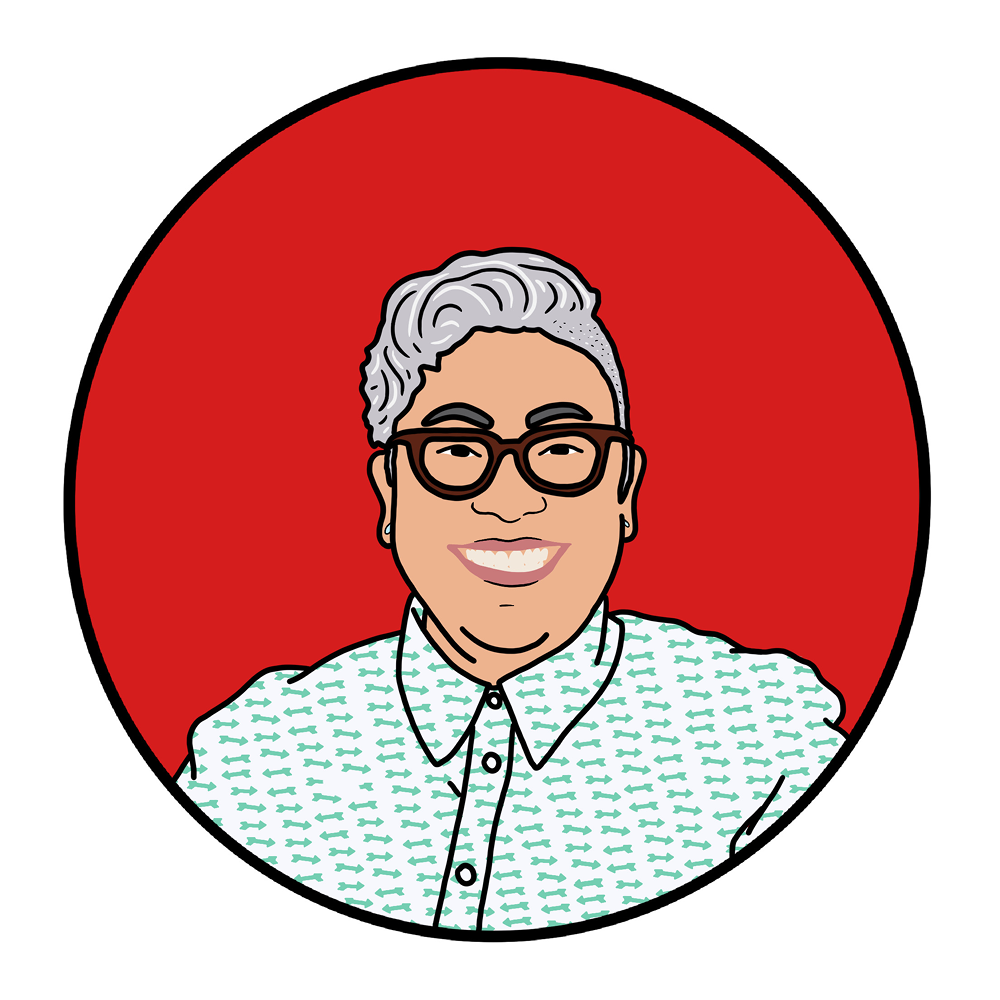 Patty:
Patty:
I’m feeling really grateful. That’s the feeling that best describes the opportunities that I’ve had, the innovation I’ve been able to jump into, the folks I’ve had a chance to work with, and the youth meetings I’ve gotten to coordinate. I think 10 years is a beautiful time to reflect and look back at where I started in Marin County, where I was working with young people on a school climate project, to today, sitting in this really important seat at the table.
Interviewer:
Speaking of reflecting, I don’t think I’ve ever heard your “coming to yli” story. How did you get started at yli?
Patty:
Well, I had a really close friend who was working at yli at the time, Kristin Law, and she just loved this work so deeply — loved thinking about how to use data to inform change and how to help young people be the drivers. She mentioned that a part-time position was opening, working with LGBTQ young people.
I was already getting good vibes through the application process and then got offered the position. And then, to actually build and work with a cohort of young people and allies on school climate in Marin County? What a blessing to be able to hear young people describe their experiences. They knew, for example, what parts of their campus did not feel safe, and that they wanted gender neutral bathrooms. So, we did a photovoice project, a type of youth led action research that is one of our core strategies at yli. They took pictures of these spaces, told their stories about these spaces, and then developed solutions to create safety.
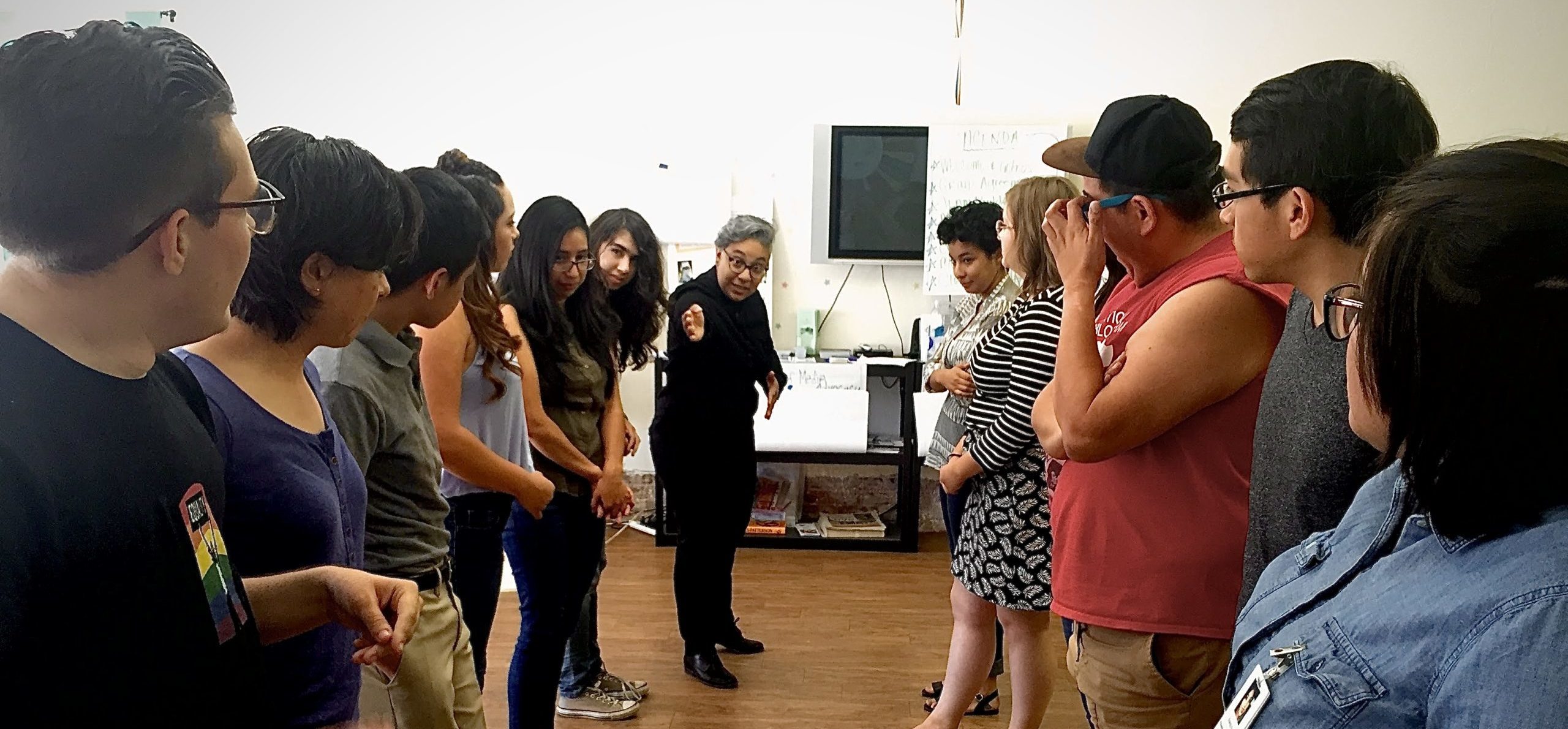
It’s an honor and a privilege to hear what people live at their deepest core, and the challenges they experience every day. I had the opportunity to see that transform into an understanding of their community’s experience, which then led to questions like, What are we going to do about it? Who do we need to talk to to change it? What’s the compelling data that we need to collect to tell this story in a really strategic way? That’s why I came to yli.
Interviewer:
Do you have a moment from those first years working with young people that inspired or challenged you that you want to share?
Patty:
I think it was those meetings with elected officials. We’re training young people, we’re building up their leadership skills, we’re creating all of these strategies. They’ve done a power mapping of the political leaders in their communities. They know what the issue is and we’ve practiced framing it. We’ve gathered the data. We’ve role played sitting down with their local city council members and they’ve scripted out what they are going to say. I’d pretend that I was the Supervisor or City Council member: “I am not sure we are going to focus on this issue, it’s important but…” We had to react, we had to drive folks to see the change youth saw for their communities.
What are we going to do in those moments? What are we going to do if they’re running late? What if they’re a little flustered? We’d cut out a picture of each of the Board of Supervisors and figure out where they stand politically. What do they care about? What do they support? Where did they used to work? And the young people would be Googling and researching. I can go on and on. That work is so transformational. You can’t describe it in words, the behind-the-scenes.
Then, during the meeting with the supervisor, we’d have the whole team deployed. One young person was just looking at body language and taking notes. One young person was taking notes on any action items that came out of that meeting. One young person would lead on the key talking points, and another was the backup in case we missed any. One young person was taking a photo to document the meeting. We needed to get it all down in writing and make sure it was visually captured so we could follow up.
It was all strategy and timing. They’d say to the Supervisor, “Well, what do you think? What recommendations do you have for us?” And that would open up the door for the supervisor to say, “Oh, well, actually we’re working on this locally,” or, “The timing right now is a little bit off, but I could see this coming up in the next few months.”
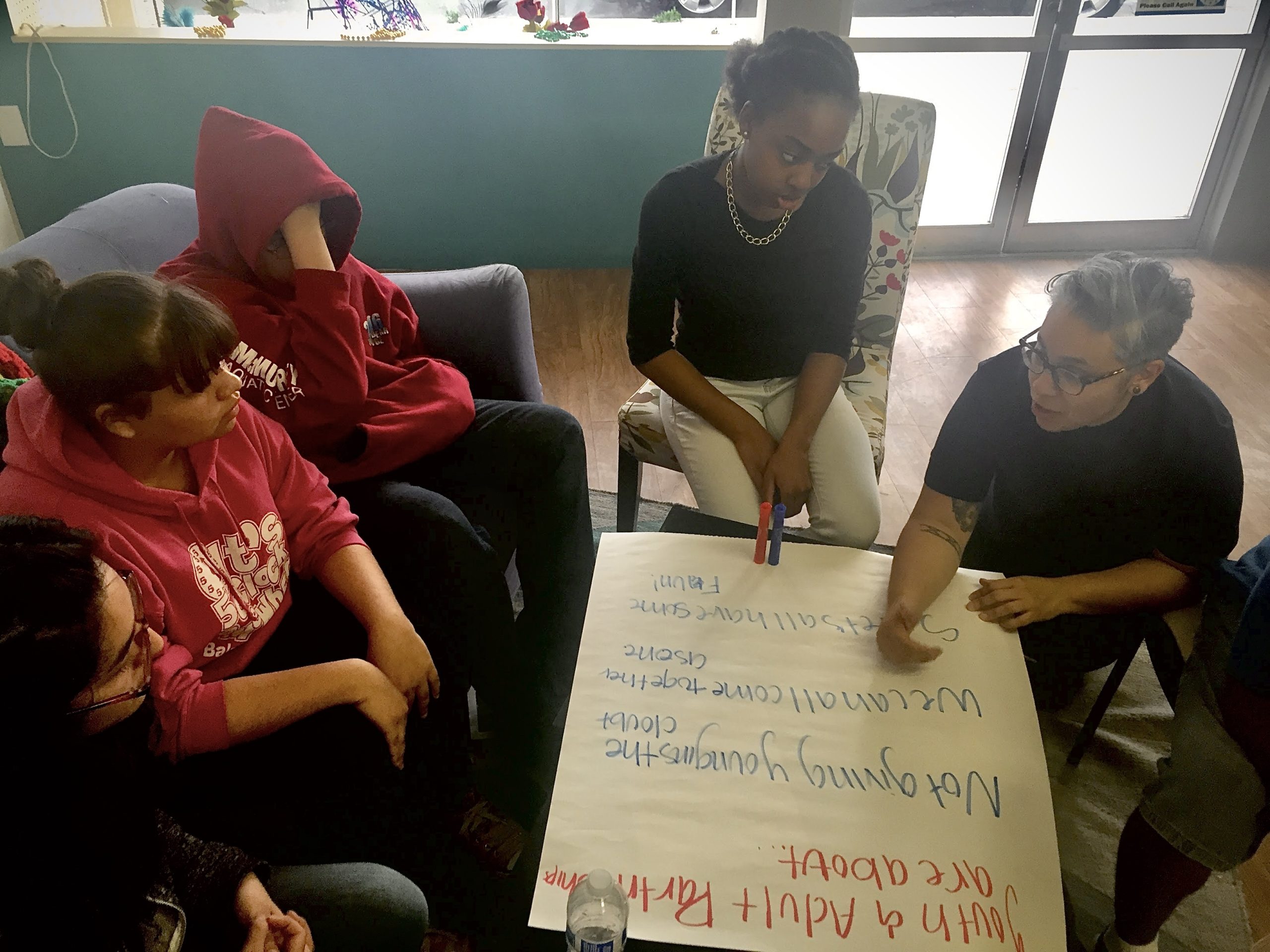
But the moments that changed me were after the meetings, where we’d circle up to debrief. I could see their hype and the adrenaline from speaking truth to power: “This is an issue we care about. This is affecting my family. This is affecting my peers. This is affecting my school site. It’s not fair that this is happening in my community, in this zip code, but it’s not happening in that zip code. And we want to talk about why.”
I’d do all these things and I’d be holding my breath and kind of nervous the whole time, because I wanted the young people to win – I wanted our communities to win. Then, they’d come out of the meeting, and one of them would say, “That was awesome!” The others would chime in: “I never thought I’d be doing this. I never thought I would be sitting down with a local elected,” and “Why aren’t other young people doing this?” or “I didn’t think they’d listened to us.” I got to see, in real time, young people stepping into their power. They knew their stuff. They knew the issue. They knew how to break down the problem. They knew the solution. But, what they didn’t know was that they had the power to create the change they envisioned.
Those moments were the best – I get to do that work. We get to do that work. We’re really lucky.
Interviewer:
Wow. That’s amazing. I love that story. So what has your trajectory at yli been like, starting as a Program Coordinator working directly with young people to the role you have now?
Patty:
Many of our leaders at yli are really intentional about cultivating non-traditional leaders. They really invested in me. But it was also about seeing it in myself. I was just like one of those young people: I never thought I would be doing this. Over the years, that feeling has switched to, “I’ve always been here. I’m going to keep calm, and keep going.” That transition happened at every step of my journey through the organization. It’s about figuring out how to step into my own power and own it – not in a way that diminishes others, but lifts up and honors my team.
It hasn’t been without its challenges. I barely made it through college – I just wasn’t that kind of learner and I really had challenges in graduate school. And so much of that is interlocked with who I am in the world as a gender nonconforming, Latinx leader. We’re deeply embedded in white supremacy culture. We’ve been socialized to think that white cisgendered men are the standard. When you realize that that is not the model you should be reaching for, you actually have to redefine what it means to be a leader. I had to take a pivot to step into my power and I’m still learning. I’m not a finalized piece of art. But I think I’m on my way.
What I’m holding onto really preciously, maybe for the rest of my tenure, is that people still can’t believe it. I remember staff saying, “I just never thought you’d be in this position. I never thought we would have someone like you in this leadership role.” Those moments really opened up my eyes to the level of responsibility I have – to the pressure that all leaders of color are under right now across the state.
How do we change that narrative? How can we say, “yes, that was totally going to happen.” These complexities impact how I lead and each leadership opportunity has helped me see my identities as valuable. We tell young people every day that their lived experiences, the lens that they’re looking through, matters. But it took this last opportunity to step into the role of CEO at yli for me to see that these identities truly matter. I have to step into them and own them and amplify them, so that others can see themselves in me.
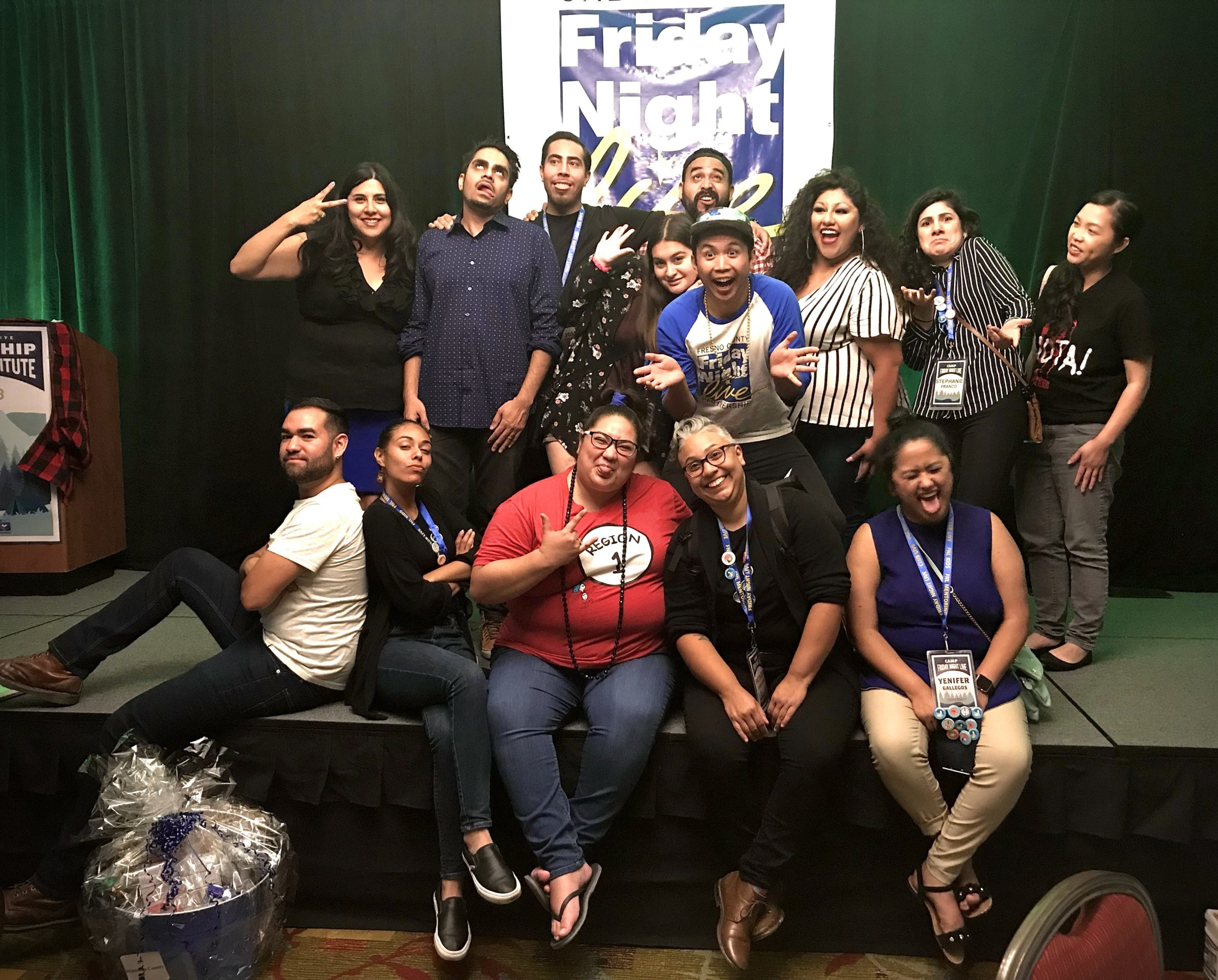
At the same time, I have to keep in mind that this is not all about me. It’s about how I set yli up for success. It’s about making sure people are thriving in their jobs and that they love their work. That they’re having those moments that I had when they circle up with young people, feeling that excitement and energy and inspiration. It’s about moving the needle across our communities on policy change that actually impacts young people of color and their families for generations to come. It’s about creating those conditions for change through our Training & Consulting Services, taking this mission and vision to help others to do this work in their communities across the country.
Interviewer:
So, what do you want to leave behind at the 10 year mark? What do you want to grow in the next decade?
Patty:
What a good question. I think what I want to let go of is that phrase in my head, “I can’t believe…” – that feeling of surprise and disbelief that I’m in this role. Because now I can believe it.
There’s a lot that I want to grow in the next 10 years. I want to continue to invest in our team. I want to have enough resources available, for example, when staff start to shop for their first home to be able to make a contribution to further the success of their families and communities. I want to raise a half a million dollar capital seed investment for our Training & Consulting Services, which will allow us to both train our communities to uplift the power of young people and, concurrently, invest in our organization and grow our financial health. I want to make sure that our young people are continuously being cultivated to become the next Program Coordinator, the next Program Manager, the next CEO!
I want to have the resources and support to help young people build their policy agenda on the issues they care most about. We want young people to continue to pursue justice in their schools and communities, and the policies that need to be enacted to address inequities.
I also want to see Myles, my son, grow. We may start a band together. I’m his lead vocalist right now. I want to see him fall in love with all the things that he’s going to fall in love with in the next 10 years. He is turning 8 in September, so wow. He’d be like 18. So I’d be seeing him off to college perhaps, or to his next opportunity.
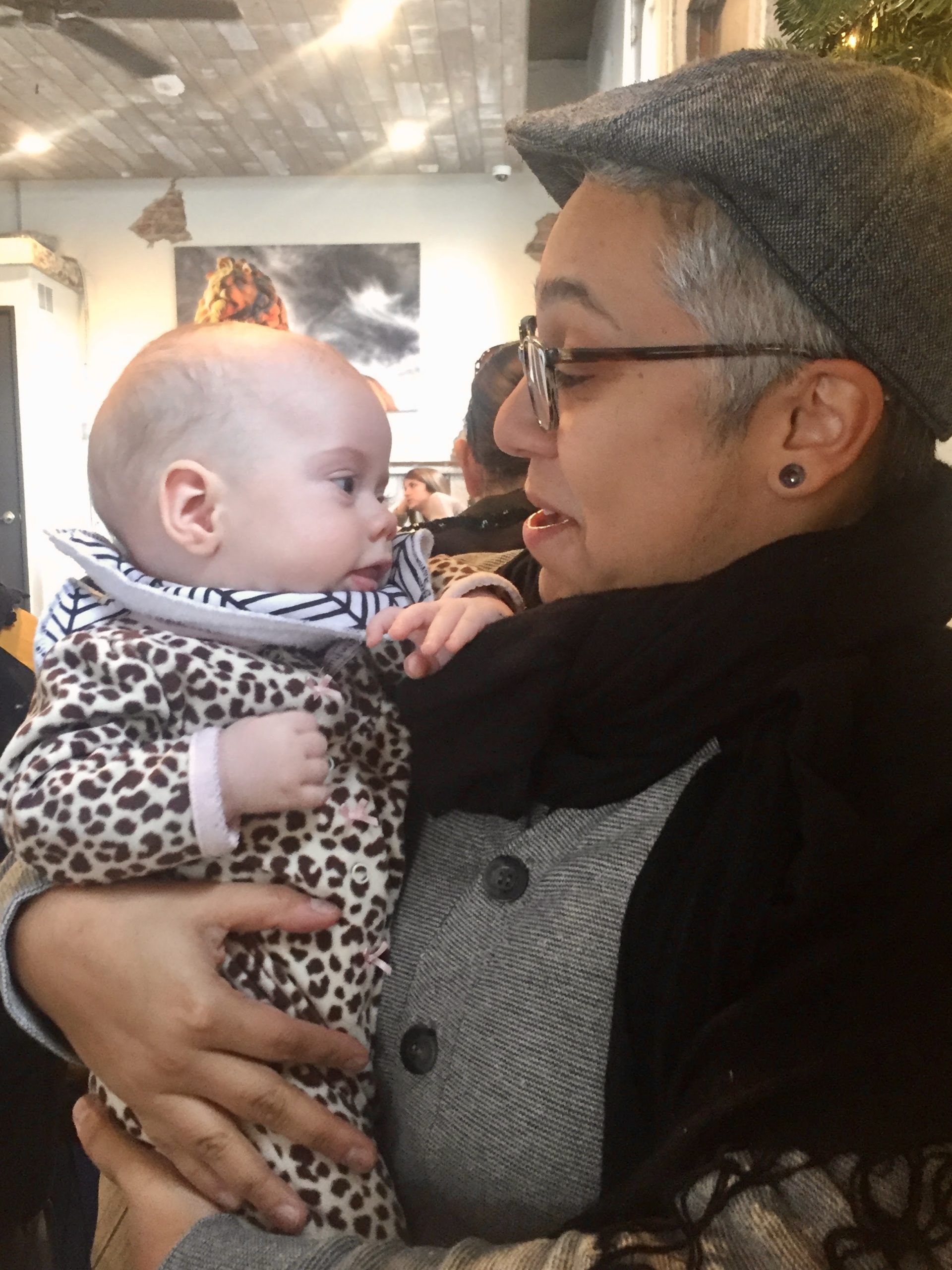
Interviewer:
What advice do you have for folks following in your footsteps?
Patty:
Get a retirement account! That’s straight up life advice, but what I really mean is, invest in you, whatever that might look like. Second, ask for feedback. Most people feel like they have to have it all figured out, but that’s not how you learn and grow. Third, figure out what loving yourself looks like for you. There aren’t a lot of people who love my hair cut or my style of dress. When you’re nonbinary, folks are always trying to put you in a box – you get messages every day about what you are and aren’t in other’s eyes. So you have to figure out in your own eyes who you are and you have to love that person deeply, rigorously. Remember, you got this.

